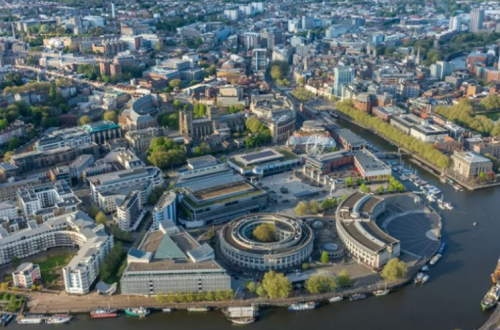Charter calls for Bristol to become UK’s first gender equal city

Putting Bristol on the map as the UK’s first gender equal city will need ‘far greater’ collaboration with the region’s major industries, including engineering and manufacturing, according to Bristol Women in Business Charter.
The Charter’s current 45 signatories are organisations which represents more than a fifth (45,492) of Bristol’s circa 222,400 employees.
But none of Bristol’s more male-dominated industries have signed up since the Charter was formed in 2019.
According to the latest census, women in Bristol who are economically active earn over £1 less an hour than their male counterparts.
Charter leaders will be calling for more male allies from big industry sectors at an event at Bristol City Council’s City Hall on April 30th as part of the launch its 2024 Annual Impact Report, which will showcase the work achieved over the past 12 months.
The Charter, signatories of which include major regional organisations such as Hargreaves Lansdown, TLT, University of the West of England, University of Bristol, and Avon & Somerset Police, has grown in momentum but the impact report shows there is still a long way to go.
Sandra Gordon, director of The Charter, said: “We have been talking for some time about inclusive workforces but still what we are seeing is that issues are dealt with in silos, not as a holistic process.
“Part of really affecting change is ensuring that our main industries, which tend to be more male dominated, are involved at the heart of this conversation.
“We have seen an increase in the number of male allies attending our events and interested in creating gender equality on all levels of business, but we need far greater input from the city’s major male-based employers. Only when these industries come to the table will we be able to collectively move forward.
“The coming year will see us ensure many more spaces are created for this to happen and call on senior HRs and CEOs to have a conversation to join the Charter and see how we can help create more progressive, inclusive and successful workplaces.”
Dan Wood, chief people officer at the University of the West of England, said: “There’s a long way to go towards making Bristol a gender equal city and we need to make quicker progress.
“Systemic, structural, institutional, and interpersonal forms of gender discrimination exist in all walks of life in our city – this harms people, holds back our talent, and diminishes our integrity.
“If we’re bold and we work to change this at all levels our city will be stronger, more competitive, and more influential in the wider world. In Bristol especially, equity and justice need to be demonstrated as our core values. This is worth fighting for.”
“We need to embrace true collaboration and joint understanding of these issues as leaders, it is central to unlocking the innovation and economic prosperity that sits at the heart of gender equality.”
James Durie, purposeful insight director and former CEO of Business West Chambers & Initiative and Charter Ambassador, said: “For businesses and, therefore, our economy to be successful we need to give opportunity to all the talent and skills available, at all levels. But there is still a long way to go to achieve gender equality and inclusivity.
“The Business Women in Business Charter gives the focus and deliberate emphasis needed to help bring about progress and change – and both showcase and celebrate pioneering approaches within the business community.”
Bristol Women in Business Charter is also one of the founding organisations for the Caring Economy Campaign being run through Bristol Women’s Voice. The 2023 census shows there are 7,300 people registered as economically inactive due to caring responsibilities, whether that is bringing up children or looking after relatives.
It is likely this figure is under-reported, and the vast majority of carers are women, which holds back women’s ability to enter the workforce
Bristol Women in Business Charter was formed by Women in Business Task Group, a group of volunteers and part of the Bristol Women’s Commission, as part of a collaboration unique to the city supporting employers put gender equity at the heart of strategic workforce planning.









